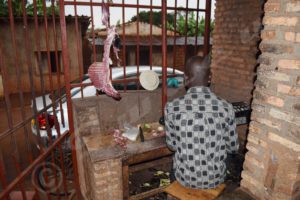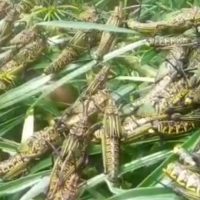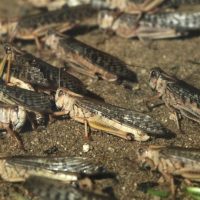All butchers in Gitega, Kirundo and Mwaro provinces are desperately worried as all markets of small ruminants have been temporarily suspended since 1st January 2018 until the situation comes to normal. They have been closed following the detection of an epidemic disease that has already caused deaths of several goats in those provinces.

It is strictly prohibited to slaughter goats
Butchers from Gitega province don’t know which way to turn. “I was used to paying my school fees and buying other personal needs thanks to butchering activities after school,” says Niyonkuru, a pupil in 3rd form of post-fundamental school in Bugendana Commune of Gitega Province. Another butcher says they will die of hunger if the ministry of agriculture and livestock doesn’t find solutions as soon as possible.
Déogratias Nsanganiyumwami, director of animal health in the ministry of agriculture and livestock, says over three thousand and forty goats were reported dead on 28 December 2017. “The goats began to get sick two weeks after they had been distributed to breeders. Local veterinary surgeons tried to treat them in vain,” he says.
The affected goats have symptoms such as nasal discharge, lesions, diarrhea, nausea, cough, conjunctivitis, severe tremors and temperature of 41 °. The disease is very contagious with a quick death that occurs between 5 and 7 days since the appearance of the first symptoms.
Laboratory exams already confirmed that the goats suffer from the plague. Nsanganiyumwami appeals to all goat farmers to do breeding in permanent spaces for the small ruminants and isolate all sick animals from those which are healthy. “We will contain the disease by prohibiting all movement of small ruminants in Gitega, Kirundo and Mwaro provinces,” he says.


















 IWACU Open Data
IWACU Open Data

